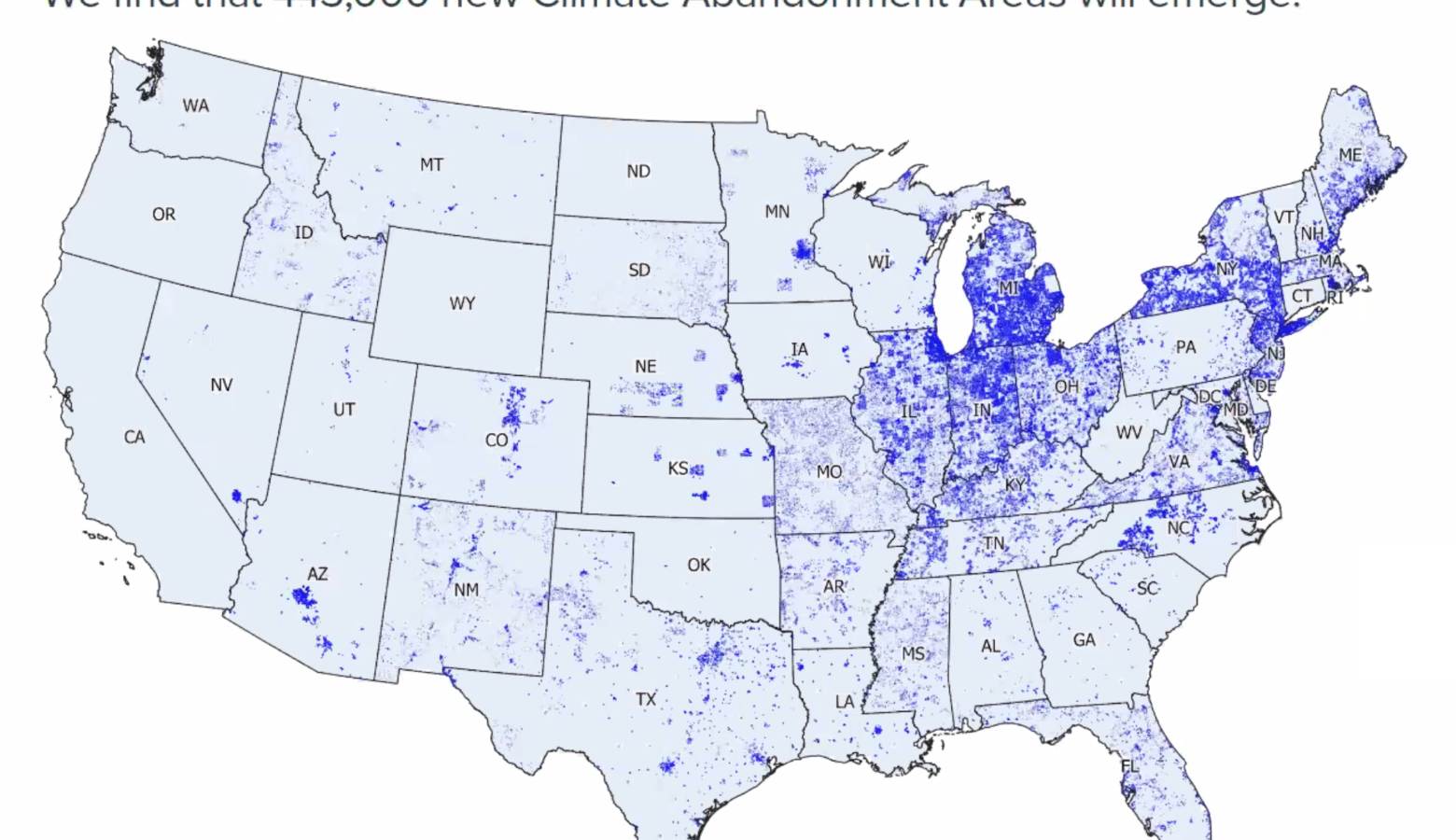Study: Flooding may be one more reason Hoosiers leave their communities

Flooding could become the tipping point for people considering moving out of their neighborhoods in Indiana. That’s according to a new study by the First Street Foundation, a nonprofit risk mitigation research group.
It projected that more than 400,000 neighborhoods will lose population in the next 30 years — mostly in the Northeast and Great Lakes states.
Jeremy Porter is the head of climate implications research for First Street Foundation. He said states like Indiana are sometimes thought of as “climate havens” — mostly free from things like hurricanes and wildfires.
But frequent flooding can cause people to move out of neighborhoods in these states — especially if there are better opportunities elsewhere, like higher-paying jobs or more affordable housing.
“So it ends up being amplified as just another factor that pushes people out of these communities,” Porter said.
Neighborhoods that lose population often lose tax revenue for things like schools and fire stations.
READ MORE: How can cities – and you – prepare for more flooding due to climate change?
Join the conversation and sign up for the Indiana Two-Way. Text “Indiana” to 73224. Your comments and questions in response to our weekly text help us find the answers you need on statewide issues, including this series on climate change and solutions.
But Hoosiers might not move too far. The study found that most people in the U.S. move within their own county to escape flooding, rather than to a new county or state.
“People want to keep the same jobs. They want their kids maybe to stay in the same schools. They want to be close to families,” Porter said.
Porter said these changes won’t empty out neighborhoods, but it can shift the demographics since only those who can afford to move do so. He said buyout programs can give lower-income residents better opportunities and can help local governments focus their energies on the homes that can be saved from flooding.
The good news is, more people are considering the climate risks before moving to a new home as companies like Redfin and Zillow add that information to listings, Porter said.
Rebecca is our energy and environment reporter. Contact her at rthiele@iu.edu or follow her on Twitter at @beckythiele.

